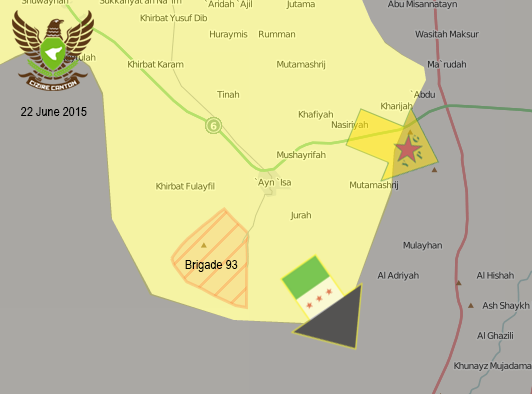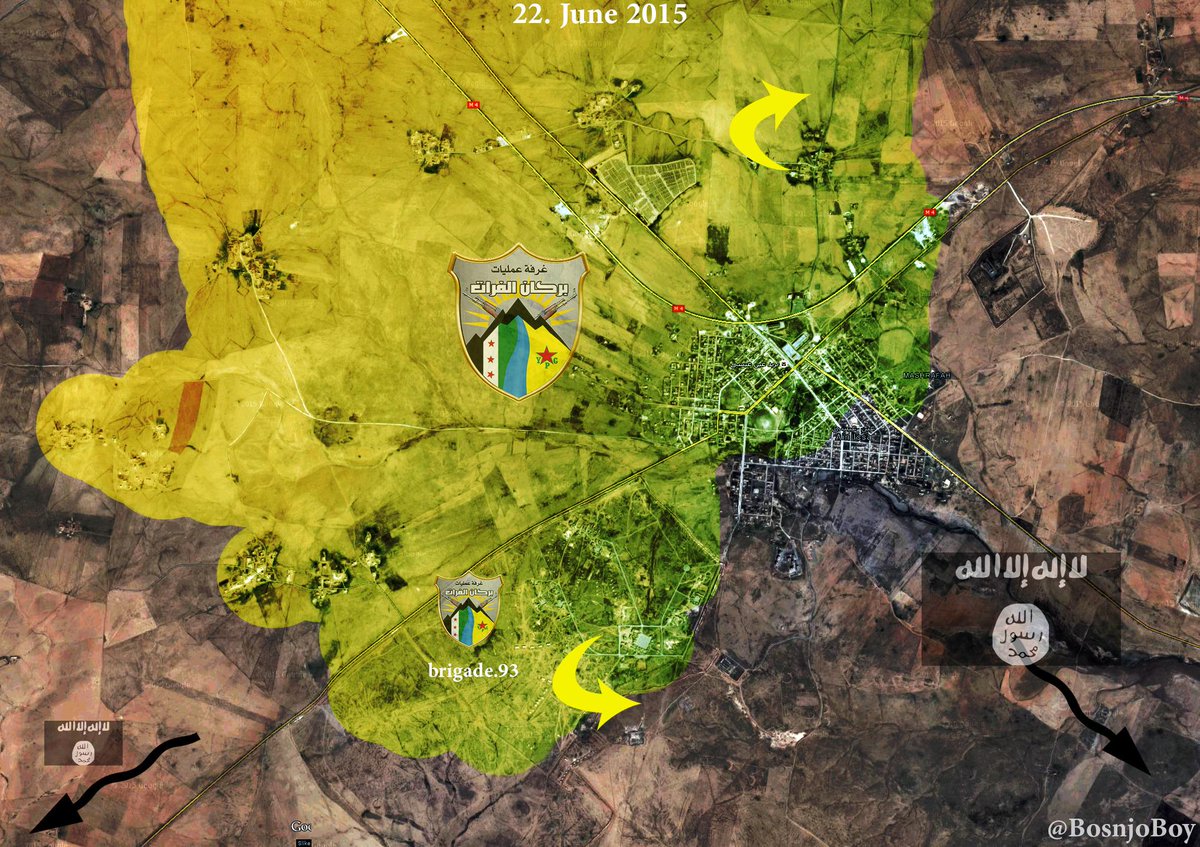SPIEGEL: What criteria did you use when selecting the locations of your attacks?
Abu Abdullah: It was about hitting as many people as possible -- especially police officers, soldiers and Shiites.
SPIEGEL: What kind of places were they?
Abu Abdullah: Police checkpoints, markets, mosques -- but only Shiite ones.
SPIEGEL: Have you regretted killing these people?
Abu Abdullah: They were infidels! Shiites are infidels, I was convinced of that.
SPIEGEL: But they are Muslims like you.
Abu Abdullah: Which is why they had the opportunity to repent and become Sunni.
SPIEGEL: How many attacks did you organize in total? And where did you get the explosives for them?
Abu Abdullah: I can't remember all of them, but in the last quarter of a year before my arrest, there were 15. For car bombs, we used C4 plastic explosives and explosives out of artillery shells. But for suicide belts, I mostly drilled open the shells of anti-aircraft guns, the effect of the powder was more intense. Then I prepared the belts and vests in different sizes.
Even late in the evening, it's still brutally hot, and a fan is rattling somewhere in the hallway. Abu Abdullah wipes the sweat from his forehead with the blindfold. He pauses briefly, then says that he counted again and that it had been 19 attacks in the three months, not 15. He talks with a calm voice, concentrated and clearly trying not to leave out any details.
SPIEGEL: How did you select the men who were to blow themselves up?
Abu Abdullah: I didn't select them. That was the duty of the military planners, who were above me in the hierarchy. The men were brought to me, most came from Fallujah. I was only responsible for the last part of the operation, and that meant preparing the men in my workshop and then bringing them to the right location. I received the person's measurements in advance from the leadership in order to be able to make a well-fitting belt. But I always had belts in different sizes prepared.
SPIEGEL: Were the families of the bombers notified after their deaths?
Abu Abdullah: That was not my responsibility either. The person who sends him also looks after the family.
SPIEGEL: Where did the men come from?
Abu Abdullah: Most of them came from Saudi Arabia, Tunisia, Algeria, about one-in-10 was Iraqi.. And there were two Westerners, one Australian and a German, Abu al-Qaqa al-Almani.
Ahmet C. from Ennepetal, North Rhine-Westphalia, a 21-year-old German of Turkish descent, fought for Islamic State under this name. In the space of just a few months, the high school student had changed radically. He handed out the Koran in pedestrian zones of German cities and then traveled to Syria via Turkey. From there he was brought by Islamic State into Iraq. He carried out one of the at least five attacks that hit police and army checkpoints, among other targets, on July 19, 2014. "Two knights of Islam and heroes of the caliphate were launched," read an IS proclamation about him and another suicide bomber, as though they themselves were weapons.
SPIEGEL: The German bomber spoke no Arabic, and you don't speak any English. How did you communicate?
Abu Abdullah: He understood a few words, but we mostly used gestures. It was my shortest operation; the place in which I picked him up was close to the detonation site. He was in Baghdad for the first time in his life, and 45 minutes later he was dead. I thought: Now even people from Germany are coming here in order to blow themselves up. It gave me a feeling of exhilaration to meet a Christian who converted to Islam and sacrificed himself. I felt close to him, because I also only found the true faith later in life.
Abu Abdullah is mistaken, Ahmet C. had not been a Christian. He was a German Muslim. Abu Abdullah himself converted from Shiite to Sunni at the age of 16 or 17, after being recruited by a preacher. He came from an old Shiite family in Baghdad and is related to a leader of the radical Shiite Asa'ib Ahl al-Haq militia, the so-called League of the Righteous, that for years perpetrated attacks on US troops in Iraq. Today, the group fights against Islamic State on several fronts.
SPIEGEL: Did any of the men you accompanied have doubts about their mission?
Abu Abdullah: No, then they would have failed to carry them out. They were prepared for their assignments for a long time. When they came to me, they were calm, sometimes even joyful. When they put on the belt they would say, for example, "Fits well!" Abu Mohsen Qasimi, a young Syrian, was still making jokes two minutes before his deployment, and then, when he drove off by himself, he bid a friendly farewell. With one young Saudi Arabian, I was wondering how we could inconspicuously change spots, because I was sitting behind the wheel at first. We pretended to have car trouble, both got out and then pushed the vehicle for a bit. Nobody noticed anything. We both laughed.
SPIEGEL: You are blushing as you relate that story. Apparently these are pleasant memories. Would you do everything over again?
This is the only moment in the one-and-a-half hour conversation when Abu Abdullah flinches. He turns pale, as though he had been caught red-handed. Then he says that he cannot answer the question.
SPIEGEL: Didn't the steady stream of new visitors to your auto repair shop attract attention?
Abu Abdullah: We made sure that they looked like normal young men, no full beard, a T-shirt, combed and gelled hair. I had a team of drivers; mines could also be picked up at my shop, though I wasn't directly responsible for them. Just for the belts of the men who blew themselves up.
SPIEGEL: How old were the bombers?
Abu Abdullah: The youngest was 21, the oldest around 30.
The power cuts out, and the cell is thrown into darkness until the mobile phones belonging to the photographer and the guards offer a pale light. Even in a high-security prison, the electricity frequently goes out for several minutes. Abu Abdullah continues talking.
SPIEGEL: How did you become the head logistician in Baghdad?
Abu Abdullah: I was selected by Islamic State's military planners. And I quickly proved that I can do it. I wasn't simply a follower, I was a planner, a thinker.
SPIEGEL: And you knew your way around Baghdad quite well.
Abu Abdullah: Yes, this here is my city. I was born here.
SPIEGEL: What is your earliest memory of Baghdad?
Abu Abdullah: When I was a kid I frequently went to the Saura Park, the Baghdad zoo, with my parents on weekends. My father often bought me an ice cream. Sometimes we also went to the markets of Shorjah.
SPIEGEL: Are they good memories?
Abu Abdullah: Yes, it was nice.
SPIEGEL: How can you indiscriminately kill people in your own city? Did you avoid places that you had personal memories of?
Abu Abdullah: No, absolutely not! That played no role whatsoever. I didn't do it because I am bloodthirsty. It was jihad. I thought, at some point these Shiites would convert or leave the city. I'm not a butcher. I was carrying out a plan.
SPIEGEL: But the plan never worked, no matter how many people died. It just amplified the hatred.
Abu Abdullah: I thought that people who experienced an explosion would start to think and that they would be afraid...
SPIEGEL: Yet it didn't work.
Abu Abdullah: That didn't matter. My idea was to continue until all of them converted. Or emigrated. It didn't matter when. It didn't matter!
His voice takes on the agitated tone of someone who must repeatedly explain a simple concept to a fool.
SPIEGEL: Would you have blown yourself up too?
Abu Abdullah: I've never thought about it. It wasn't my job. I was chosen to plan the operations, not to carry them out myself. I was a coordinator, not an executor.
SPIEGEL: How do you see your future?
Abu Abdullah: It's uncertain.



